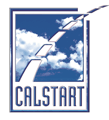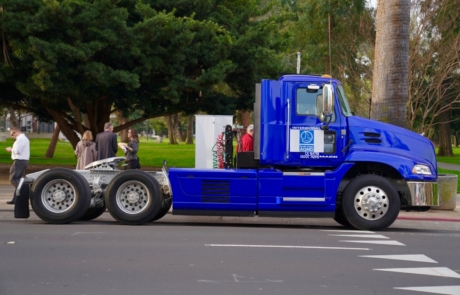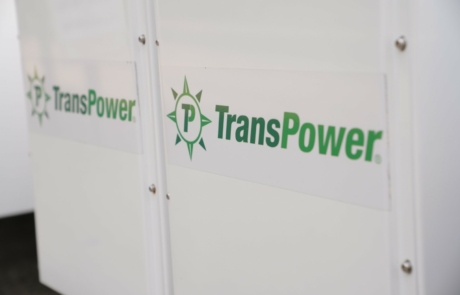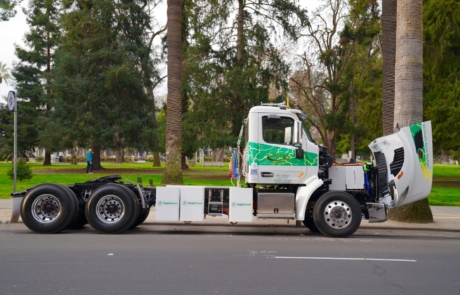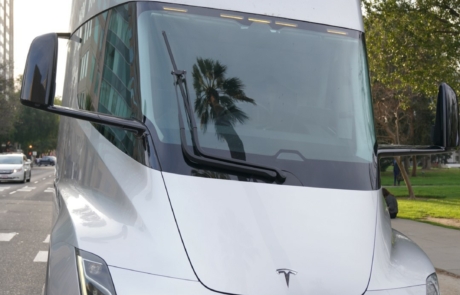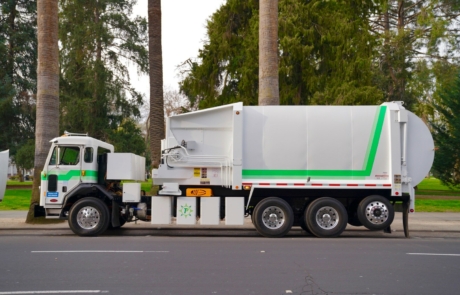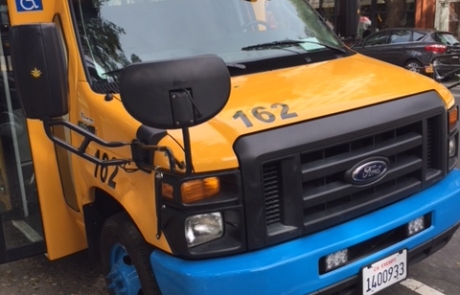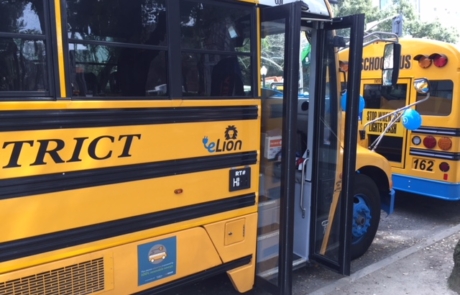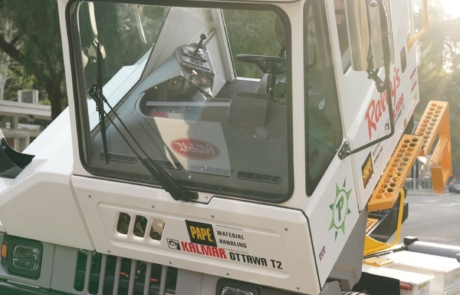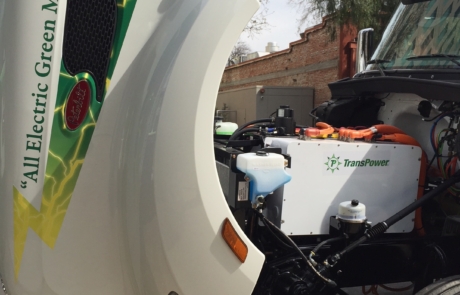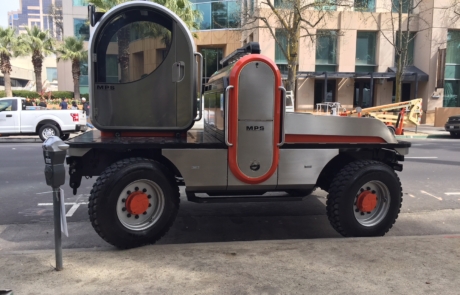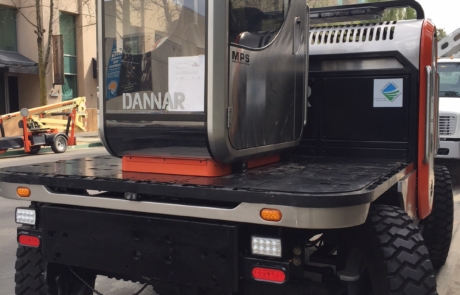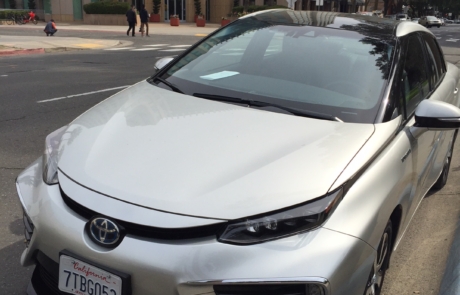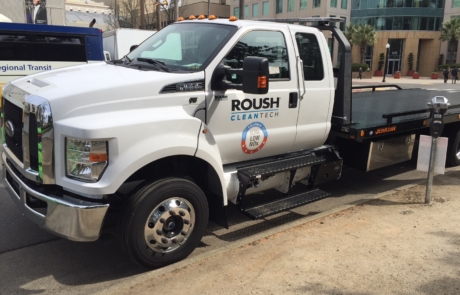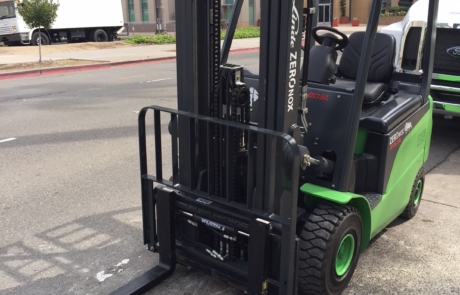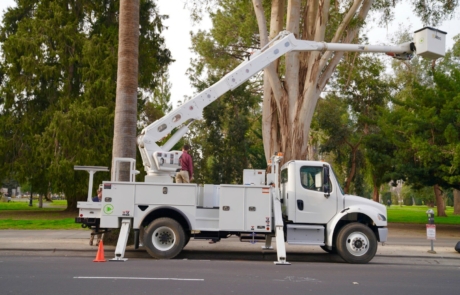CALSTART announces “transforming trucking” legislative goals for 2019
CA policies will drive technology innovation, clean vehicle adoption, clean air
March 19, 2019
SACRAMENTO, Calif – The CALSTART California 2030 Summit for Clean Transportation kicks off this morning as the national nonprofit announces its sponsorship of a “transforming trucking” legislative package at the California State Capitol Park.
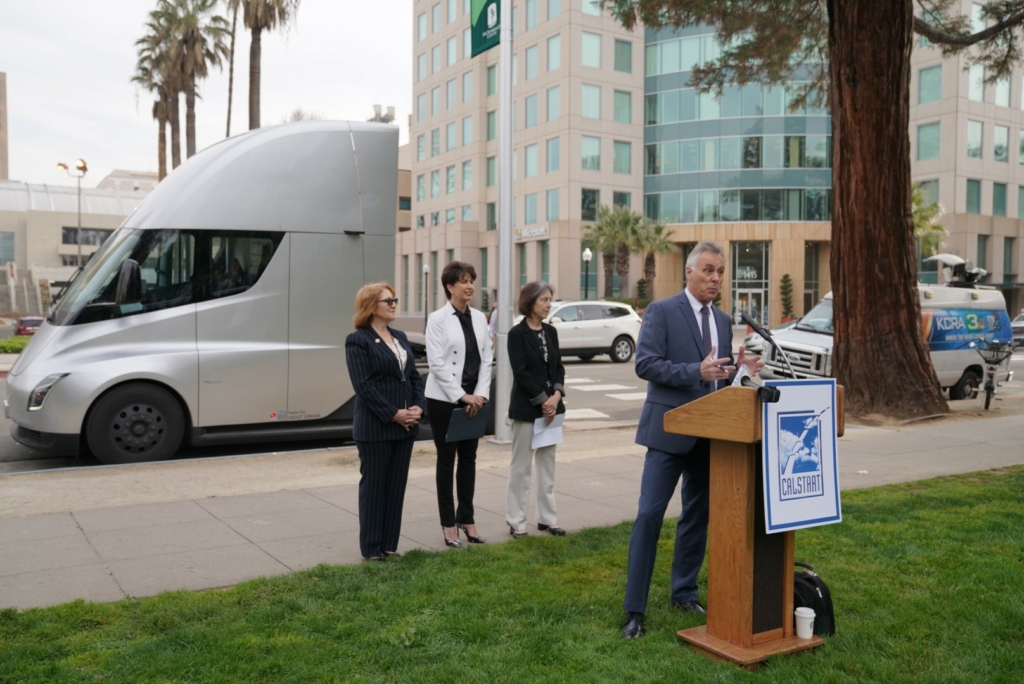
Flanked by zero-emission and other clean trucks, buses and vehicles CALSTART is joined by Senator Nancy Skinner (D-Berkeley), Senator Connie M. Leyva (D-Chino) and Assemblymember Eloise Gómez Reyes (D-San Bernardino).
Flanked by zero-emission and other clean trucks, buses and vehicles from Altec, Dannar, EnviroTech, Ford, Lion Electric, Motiv, Mack (Volvo Group), New Flyer, Peterbilt, Roush, Tesla, Toyota, Trans Tech, TransPower and Zeronox, CALSTART is joined by Senator Nancy Skinner (D-Berkeley), Senator Connie M. Leyva (D-Chino) and Assemblymember Eloise Gómez Reyes (D-San Bernardino).
“This package of bills is designed to support and drive investment into innovative clean vehicle technologies that support local jobs and fleets, while also accelerating the adoption of clean vehicles that help clean up our air,” said John Boesel, President and CEO of CALSTART.
Sen. Skinner’s Senate Bill 44 (SB44) would set a 40 percent net reduction in carbon emissions for medium-and heavy-duty vehicles by the year 2030 and an 80 percent reduction by 2050, consistent with existing state goals. At the same time, the bill calls for a reduction of more than 50 percent of additional criteria pollutants in California from big trucks. Critical to the success of such a law, the bill creates a multi-year funding platform to deliver investment and support to fleets.
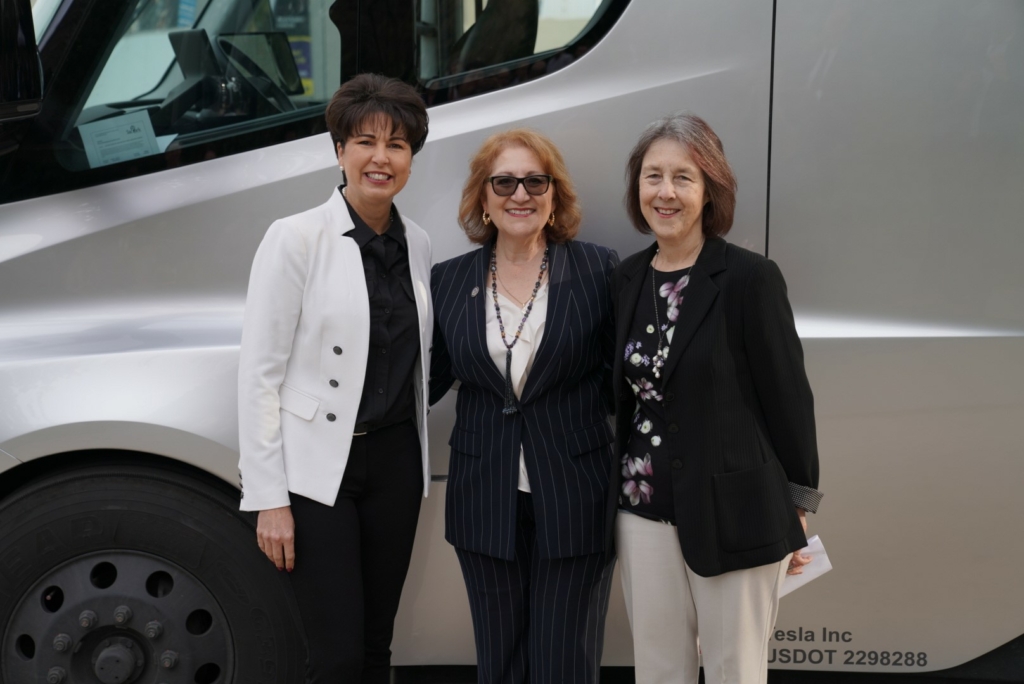
Senator Connie M. Leyva (D-Chino), Assemblymember Eloise Gómez Reyes (D-San Bernardino), Senator Nancy Skinner (D-Berkeley) join CALSTART to announce “transforming trucking” package of bills.
“Tailpipe pollution from medium- and heavy-duty petroleum-diesel trucks damages our health and is a major source of greenhouse gas emissions,” said Sen. Skinner, author of SB44. “We need to continue to send the right signals and create incentives to spur the transition to cleaner vehicles.”
“We need to transform trucking incredibly fast, but vital state funding for that change has relied on sources that are year-to-year. This slows fleets’ ability to purchase and limits vehicle maker investments. They need long-term certainty. This bill is critical because it creates a multi-year investment funding mechanism. With it, fleets who want to buy and manufacturers who want to build significantly cleaner, more efficient vehicles can make their long-term plans,” said Bill Van Amburg, Executive Vice President of CALSTART. “This effort drives towards zero-emissions everywhere possible but is also technology neutral and notes zero may not be possible in all applications.”
Senator Leyva’s Senate Bill 210 (SB210) would establish smog check requirements for heavy-duty diesel trucks in California. The goal is to stop gross polluters with a sensible smog check system in California analogous to what is done for light-duty vehicles.
“The bill is just common sense: make high polluters clean up or get off the road. It’s not fair that responsible fleets who buy clean trucks and maintain them can get undercut in the market by fleets who don’t service their vehicles and pollute more to run on the cheap. We’re subsidizing them with our lungs,” said Van Amburg.
“SB 210 is a critical next step to reduce pollution from the many big diesel trucks that travel on the roads and highways across California. Applying similar responsibilities to truck operators to maintain their emission controls, just like we already require for everyone else, is common sense,” Sen. Leyva said. “As new trucks with modern technology hit the roads, we have a unique opportunity to ensure long lasting air quality improvements and improve the competitiveness of the California trucking industry. SB 210 can be a real win-win for California residents and the air we breathe.”
Assemblymember Eloise Gómez Reyes’ (D-San Bernardino) Assembly Bill 1411 (AB1411) establishes a state goal to deploy 200,000 zero-emission medium- and heavy-duty vehicles and off-road vehicles and equipment by the year 2030. It also creates a legislative framework for an action plan to reach the clean vehicle milestone.
“We are currently experiencing a health crisis in the Inland Empire with one in seven children in my district diagnosed with asthma. A critical part of achieving environmental justice is investing in clean transportation solutions,” said Assemblymember Reyes.
Tomorrow CALSTART will feature top Newsom administration officials, innovation, utility, elected, business and transit leaders to identify and explore the technologies, policies, investment and other shifts needed to dramatically curb transportation emissions and clean up our air by the year 2030. With a focus on transit, hauling, delivery, and other large vehicles, tomorrow’s summit will feature appearances by Kate Gordon, Director of the Governor’s Office of Planning and Research; Jared Blumenfeld, Secretary of the California Environmental Protection Agency; and Mary Nichols, Chair of the California Air Resources Board (CARB).
Many of the innovative technologies and technology firms featured at the CALSTART 2030 Summit enjoy support from California Climate Investments (CCI). CCI is a statewide program that puts cap-and-trade dollars to work reducing greenhouse gas emissions, strengthening the economy and improving public health and the environment—particularly in disadvantaged communities. CCI dollars fund a number of innovative efforts to develop and deploy medium- and heavy-duty vehicles including California HVIP. Developed in a unique partnership between CALSTART and the California Air Resources Board and administered by CALSTART, HVIP has helped put more than 3,500 medium- to heavy-duty clean vehicles on California roads.
“CARB’s leadership in supporting the deployment of medium- and heavy-duty vehicles in California has been critical to the growth we have seen in this market over the past few years,” said Boesel. “We look forward to working closely with CARB and our member innovators to keep the momentum going in California and beyond. We’re not stopping until we transform trucking delivering jobs, innovation and clean air benefits to all the corners of the globe,” said Boesel.
Industry leaders presenting at the summit will weigh in on topics including getting California to five million zero emission vehicles by 2030, accelerating the medium- and heavy-duty zero emission vehicle market, Tesla’s role in building zero-emission technology jobs, driverless vehicles, mobility challenges and innovations, infrastructure needs and opportunities, funding priorities, reaching all California communities, and America’s first Green City.
CALSTART | Changing transportation for good
A national nonprofit consortium with offices in New York, Michigan, Colorado and California, CALSTART partners with 200+ member company and agency innovators to build a prosperous, efficient and clean high-tech transportation industry. We knock out barriers to modernization and the adoption of clean vehicles. CALSTART is changing transportation for good.
